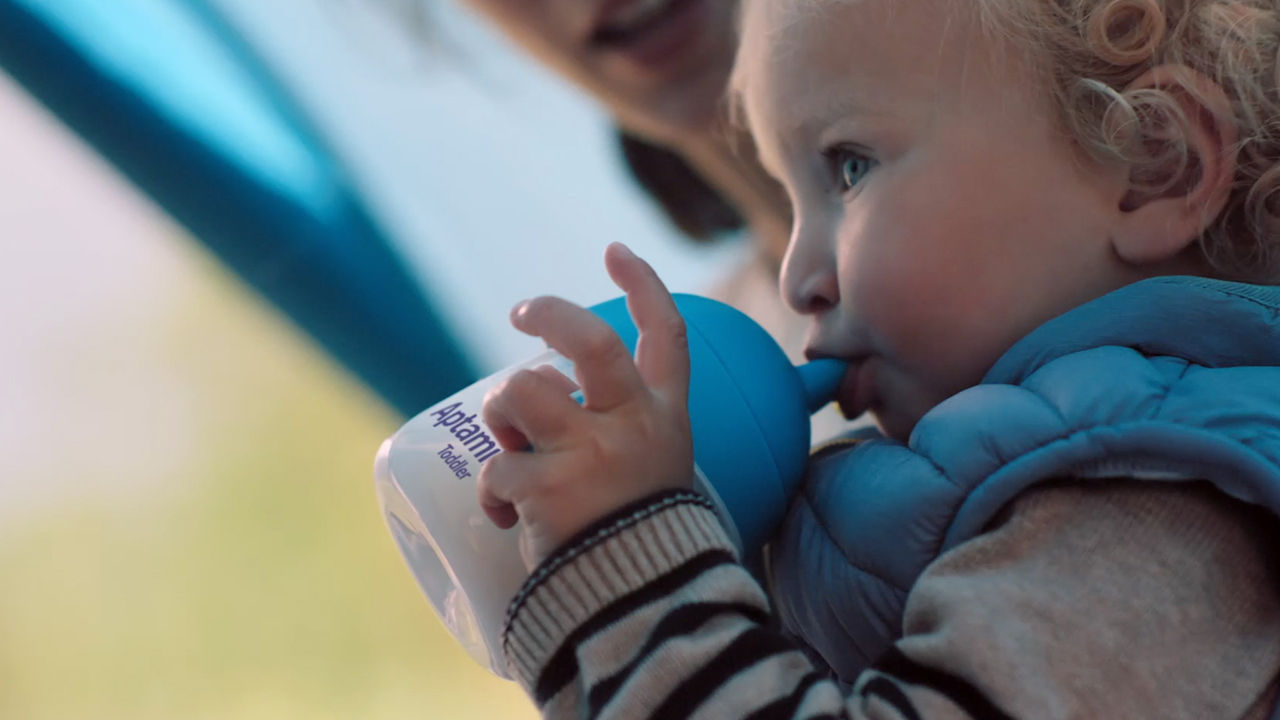| | Average Quantity Per 100mL of Prepared Feed |
|---|
| NUTRITION INFORMATION | |
| Energy | 66 kcal |
| | 275 kJ |
| Protein | 1.6 g |
| — Whey | 100 % |
| Carbohydrates | 7.5 g |
| — Lactose | 2.9 g |
| Fat | 3.1 g |
| OMEGA LCPUFAs1 | |
| Arachidonic Acid (AA) | 16.3 mg |
| Docosahexaenoic Acid (DHA) | 16.3 mg |
| MINERALS | |
| Calcium | 75 mg |
| Phosphorus | 47 mg |
| Sodium | 21 mg |
| Potassium | 86 mg |
| Chloride | 50 mg |
| Magnesium | 7.2 mg |
| Iron | 0.83 mg |
| Zinc | 0.65 mg |
| Manganese | 6.1 μg |
| Copper | 51 μg |
| Iodine | 12.4 μg |
| Selenium | 1.8 μg |
| VITAMINS | |
| Vitamin A | 57 μg-RE |
| Vitamin D | 1.6 μg |
| Vitamin E | 1.1 mg |
| Vitamin K | 4.3 μg |
| Vitamin B1 | 62 μg |
| Vitamin B2 | 137 μg |
| Vitamin B6 | 42 μg |
| Vitamin B12 | 0.16 μg |
| Niacin (B3) | 0.48 mg |
| Pantothenic Acid (B5) | 0.53 mg |
| Biotin | 1.8 μg |
| Folate | 13.5 μg |
| Vitamin C | 8.2 mg |
| OTHERS | |
| Choline | 14.2 mg |
| Taurine | 4.9 mg |
| Inositol | 6.7 mg |
| L-carnitine | 1.9 mg |
| NUCLEOTIDES | |
| Cytidine 5′- monophosphate | 0.84 mg |
| Uridine 5′- monophosphate | 0.55 mg |
| Adenosine 5′- monophosphate | 0.48 mg |
| Inosine 5′- monophosphate | 0.32 mg |
| Guanosine 5′- monophosphate | 0.16 mg |
| PREBIOTICS | |
| sc GOS 2 | 0.72 g |
| lc FOS 3 | 0.08 g |
1 LCPUFAs – Long Chain Polyunsaturated fatty acids
2 GOS – Galacto-oligosaccharides
3 lc Polyfructose – long chain Polyfructose
Ingredients List:
Maltodextrin, whey protein hydrolysate (contains milk), vegetable oils (antioxidant (ascorbyl palmitate, citric acid)), galacto-oligosaccharides (contains milk), omega LCPUFAs (contains fish, antioxidant (mixed tocopherols, ascorbyl palmitate)), emulsifier (citric acid ester of mono- and diglycerides, sunflower lecithin), long chain fructo-oligosaccharides, choline chloride, L-tyrosine, inositol, taurine, Bifidobacterium breve M-16V, L-carnitine.
Minerals: Potassium, calcium, chloride, phosphorus, sodium, magnesium, iron, zinc, copper, iodine, manganese, selenium.
Vitamins: Vitamins (A, B1, B2, B3, B5, B6, B12, C, D3, E, Ki), folic acid, biotin.
Nucleotides: Cytidine-5′ -monophosphote, uridine-5′ monophosphote, adenosine-5′ monophosphote, inosine-5′-monophosphote, guanosine-5′-monophosphote.
Contains: milk, fish.











